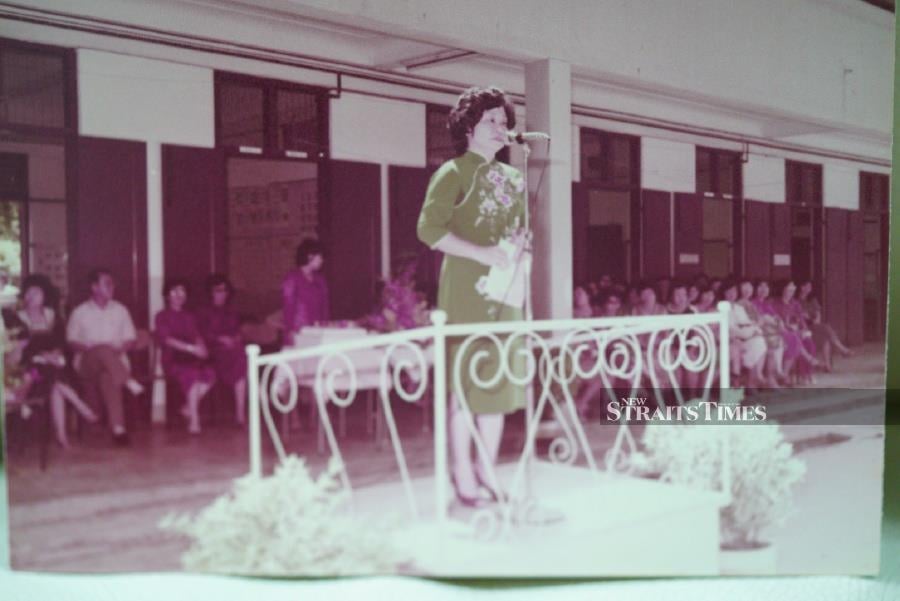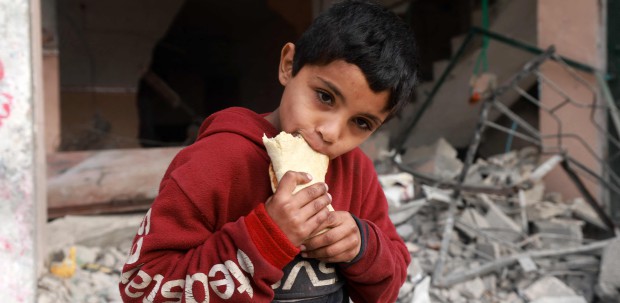FOLLOWING the Marco Polo Bridge Incident in Beijing, China, where escalating tension between Japanese forces and the Chinese garrison resulted in a firefight on the night of July 7, 1937, the Imperial Japanese Army also began setting its sights on Shanghai.
Renowned as the vibrant commercial and financial hub of China, Shanghai stood not only as its largest city, but also as a symbol of international influence, boasting foreign concessions granted to Western powers in the aftermath of the Opium Wars.
The Battle of Shanghai, an epic struggle lasting three harrowing months, engulfed the city in a relentless storm of house-to-house and hand-to-hand combat. In its wake, Shanghai lay in ruins, with the toll of death reaching hundreds of thousands, both soldiers and civilians alike.
Among the horrified witnesses to the carnage was a frightened 10-year-old girl named Chow Yoong Yue, later known as "Mrs Yeoh" following her marriage.
With a tremor in her voice, Chow recounts: "Japanese planes bombed Shanghai daily. Each explosion shook not only our home, but our very hearts. Thousands of homes were reduced to rubble, and lives were lost every single day."
MALAYA'S WARM EMBRACE
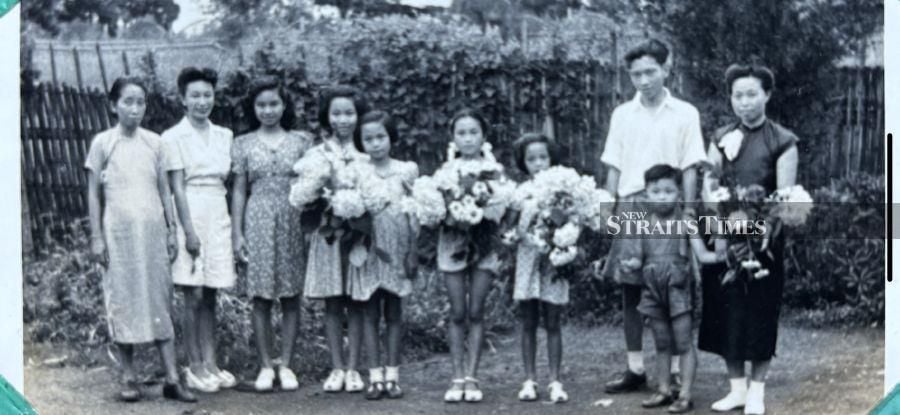
To avoid the advancing Imperial Japanese Army, millions of civilians were forced to flee southwards towards Nanking.
But fearing for the safety of his family, Chow's father sent them further south than everybody else — out of China and into Malaya instead.
"As our ship departed Shanghai harbour, waves of Japanese planes flew overhead, enroute to bomb the city. It was so sad to see the city going up in flames. We prayed fervently that our ship wouldn't be bombed too," continues Chow.
Despite the danger, her mining-engineer father remained in China to ensure the critical supply of copper for munitions to fight the Japanese invaders.
Her father's foresight saved his family. An estimated 300,000 people later perished in the "Rape of Nanking" — the mass murder of Chinese civilians by the Imperial Japanese Army immediately after the Battle of Nanking.
The massacre began on Dec 13, 1937, and lasted for six weeks. It was a dark chapter in human history that claimed hundreds of thousands of lives.
Chow's mother brought her and her siblings to stay with her uncle Y.D. Woo, a school inspector in Perak, Ipoh. Describing her first impression upon arrival in Malaya in 1938, Chow shares: "Malaya was so peaceful, and Ipoh seemed a charming town with friendly people."
SCHOLASTIC TRADITION
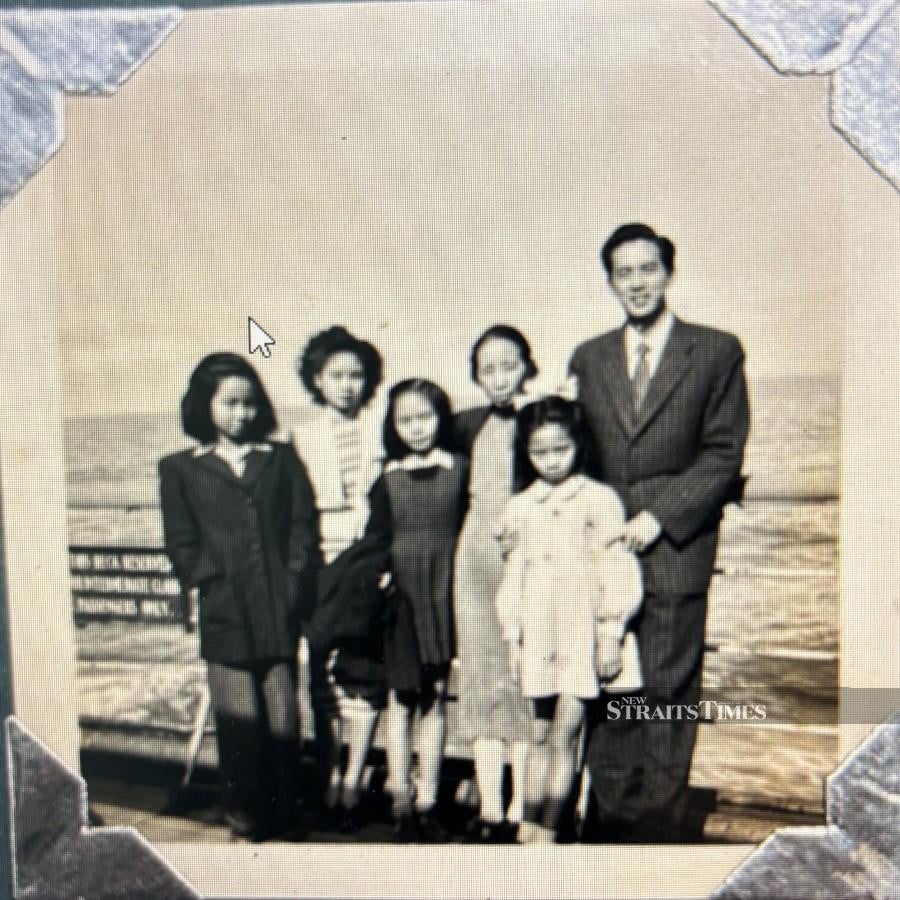
In Ipoh, Chow's mother wasted no time in enrolling her at Poi Lam Primary School. For her secondary education, Chow studied at the Anglo-Chinese Girls Secondary School, known today as the Methodist Girls' School.
Within a space of only a few years in Malaya, Chow was able to master both English and Bahasa Melayu.
"I love learning new languages. I'd speak Malay to my Malay friends, Chinese to my Chinese friends and English to those from English schools," she shares, smiling serenely.
Her trilingual education enabled her to adopt a progressive and open-minded attitude in life. This asset would put her in good stead in her career later.
INTO THE FIRE
After a few months, Chow and her siblings quickly settled down in Ipoh and began enjoying their new home. Good friends like Wang Gungwu helped them to overcome their initial homesickness (Wang went on to become a dean at the University of Malaya and an eminent professor overseas).
However, her family's lucky escape to Malaya proved to be short-lived as the Imperial Japanese Army soon caught up with them when General Tomoyuki Yamashita (also known as the Tiger of Malaya) and his troops invaded Ipoh in December 1941.
Just like in China, the Japanese soldiers continued their atrocities and injustices in Malaya. There was also widespread hunger and disease. Solemnly, she recalls: "It was like jumping from the frying pan into the fire!"
RETURN TO MALAYA
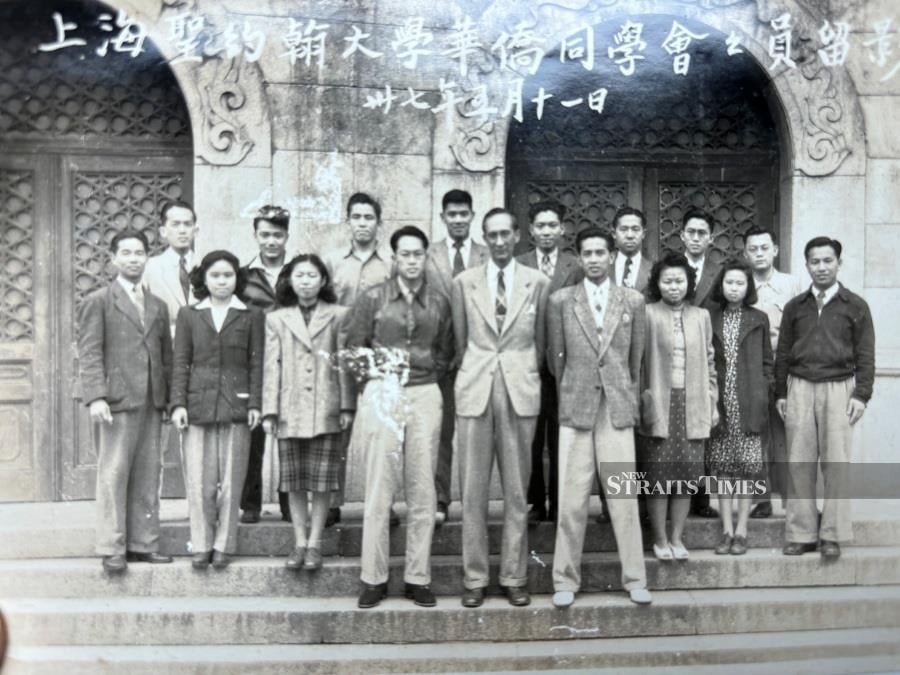
Following the Japanese surrender, Chow's mother decided to take her family back to Shanghai in 1947. Chow's stellar academic performance opened the doors to enrolment at the esteemed American St John's University in Shanghai, whose alumni included renowned figures like architect I.M. Pei (designer of the Louvre Pyramid in Paris, France) and Chinese Premier T.V. Soong (brother of the famed Soong Sisters).
Hoping to reclaim the vibrant and peaceful Shanghai of their memories, Chow and her family were met with disappointment as their dreams were shattered by the onset of a deadly civil war that engulfed the entire nation.
Led by Mao Tse Tung, the Chinese Communist Party clashed with Kuomintang under Generalissimo Chiang Kai Shek, plunging China into turmoil once again.
To avoid the turbulence and upheavals of the civil war, Chow's family had to flee to Malaya again. However, Malaya would soon face its own turbulence when the British declared the Emergency in 1948.
Amidst the chaos, love bloomed in unexpected places as Chow found herself drawn to the whirlwind romance of post-war Malaya. Against the backdrop of the communist insurgency, her marriage to Datuk Yeoh Kian Teck became a beacon of hope and resilience.
Younger sister Rosaline Chow confides: "I saw Yeoh dating my sister. They'd go out together and my sister would be riding pillion on his bicycle. It really was very romantic."
Ipoh and much of the surrounding Kinta Valley was a hotbed of guerilla activities, with soldiers and civilians being killed and injured. Fortunately, the threat of Communism subsided after a decade, paving the way for Merdeka and the end of the Emergency in 1960.
BUILDING A NATION
The deaths and destruction that Chow witnessed during the wars in China and Malaya triggered her resolve to take up the challenge to teach. She was also driven by a dream to build a peaceful and harmonious multiracial nation.
Teaching is an inherently noble yet demanding calling, requiring immense emotional investment. Much like a candle illuminating a darkened path, teachers guide others while sacrificing themselves in the process. This burning desire to uplift others and contribute to society seamlessly aligned with the Chow family's long-standing tradition of scholastic excellence.
Her first-hand experience of wartime hardship fostered a deep empathy for underprivileged students. Her unwavering commitment to breaking down the barriers of social and cultural disadvantage was nothing short of commendable.
After her teacher training stint in Penang, Chow was posted to Pasir Puteh Primary School in Ipoh in 1957. Smiling, she recalls: "That was my first school and it happened to be the Merdeka year!"
UNLOCKING POTENTIALS
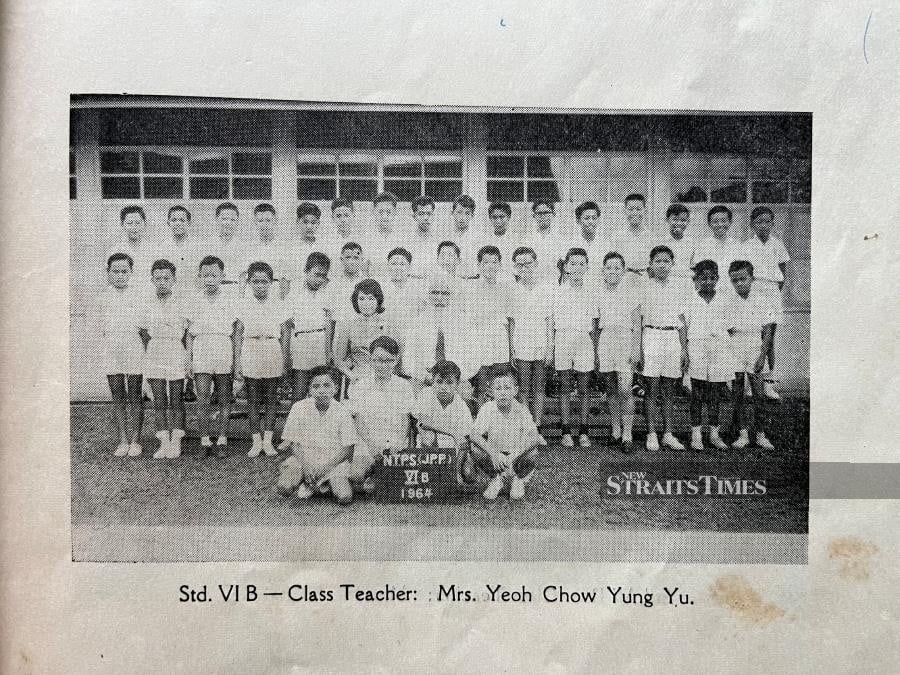
Among Chow's students was renowned cartoonist Datuk Mohd Nor Khalid, affectionately known as Lat.
In our conversation for this story, Lat reminisced: "Mrs Yeoh was my form and English teacher. When I transferred to the school in Year 5 from a Malay kampung school, my English skills were limited.
"Yet, in just two years under her guidance, I not only learned to read and write proficiently, but also performed the Beatles' song It's a Hard Day's Night at our school concert."
Echoing Lat's sentiments, Robert Lean, Lat's class monitor in Class 6B, added: "Mrs Yeoh's caring nature extended beyond the classroom. She'd often motivate us with treats like Cadbury chocolate bars, and I still cherish the postcard she sent me while vacationing in Europe."
Recognising her exceptional abilities, Chow was later appointed to teach at Sungai Pari Secondary School, also in Ipoh.
Determined to unlock her students' full potential, she began each day with a motivational pep talk, setting the tone for a day of learning and growth.
Reflecting on Chow's impact, her former student Datin (Dr) Mallika Maniam fondly recalled: "Her pep talks were truly uplifting. Thanks to her encouragement, I pursued my dreams and graduated as a doctor. Moreover, Mrs Yeoh often invited us to her home, treating us to delicious meals that we thoroughly enjoyed."
Chow's professionalism and mentorship extended beyond her students to her colleagues. Ng Chiew Hoon, a former colleague at Sungai Pari Secondary School, expressed admiration, saying: "Mrs Yeoh's dedication to her profession was exemplary. As a young teacher, I benefited greatly from her guidance and coaching during my time there."
VISIONARY PRINCIPAL
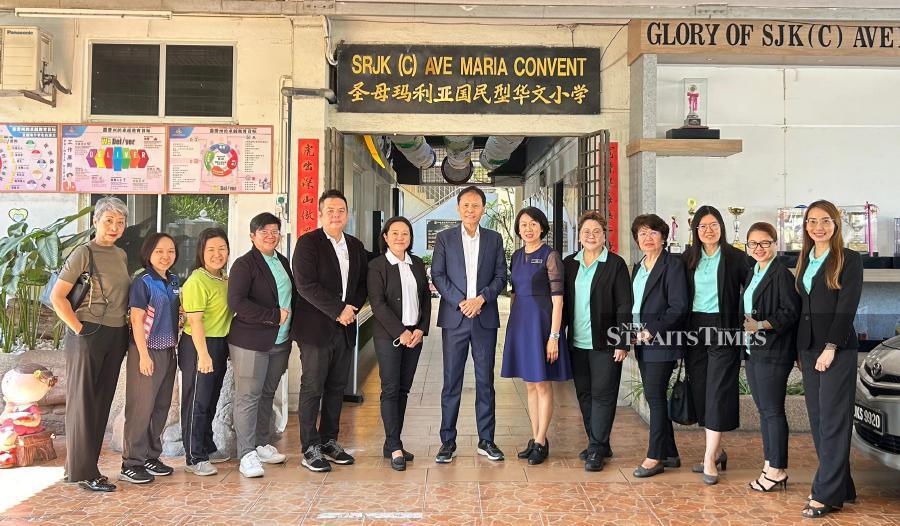
In an unprecedented move, Chow was appointed as the first lay principal of SRJK Ave Maria Convent (AMC) in Ipoh, a prestigious primary school boasting over 2,000 pupils.
True leadership transcends mere management; it inspires and transforms. As a visionary, Chow illuminated a path forward for her colleagues and students alike.
Lee Ai Phin, who used to be Chow's senior assistant, fondly reminisces: "She was an exceptional leader who set a lofty standard and instilled a sense of ownership and confidence in all of us. Driven by her unwavering vision, she displayed remarkable dedication and determination to enhance our school."
Among those inspired by Chow's leadership was Ellen Teoh, then a young teacher at AMC.
Reflecting on Chow's impact, Ellen testified: "Mrs Yeoh's leadership was both effective and perceptive. Her stirring speeches delivered in Chinese, English and Malay during school assemblies ignited a passion for excellence among both staff and students."
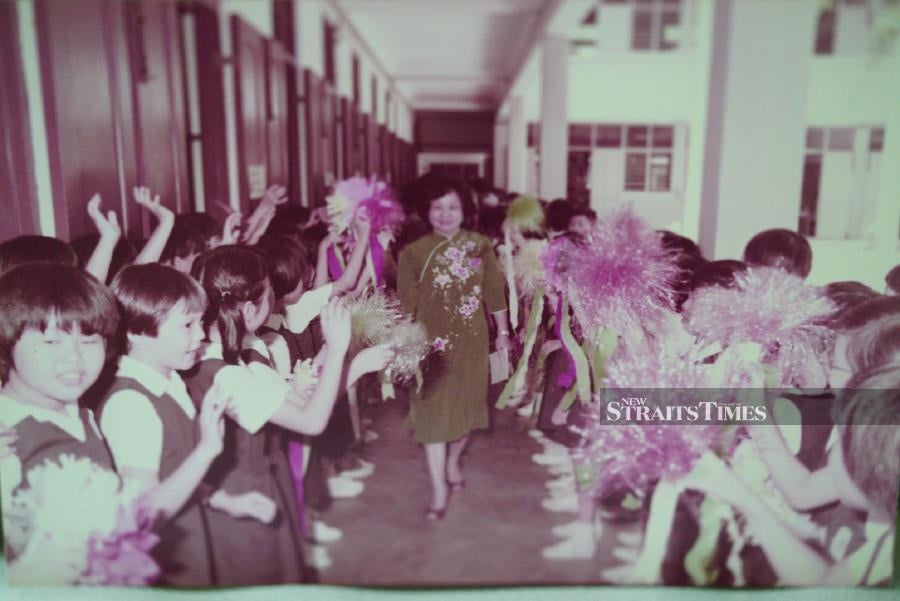
True leadership also requires moral courage — the willingness to uphold integrity and do what's right, even in the face of adversity. Chow exemplified this virtue by diligently ensuring transparency and honesty in all dealings, even when corruption was prevalent among the school suppliers — an act that set a precedent for ethical conduct within the school community.
"I'm reminded of my great-great-great granduncle Lin Zexu, who was an incorruptible governor-general in the Qing Dynasty," confides Chow over lunch, elaborating: "He appealed to Queen Victoria to stop the opium trade but to no avail. In the end, he burnt all the opium."
Throughout her long and illustrious career, Chow's tireless dedication and genuine concern for others have touched the lives of thousands of teachers and pupils. As Datin Irene Lee, president of the AMC board of governors, aptly sums it up: "Mrs Yeoh was an incredible leader. She moulded, nurtured and shaped her pupils to become leaders of society!"
A MODEL MUM
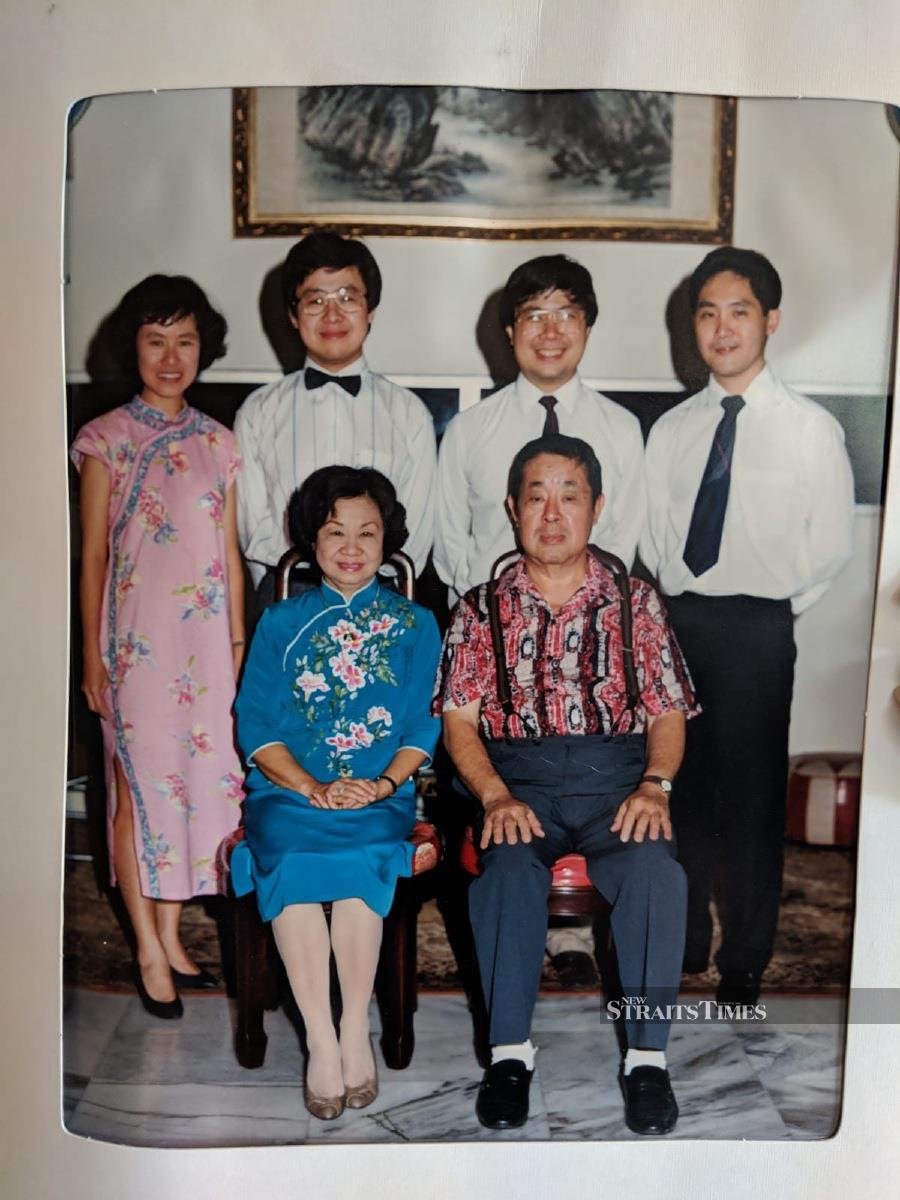
Despite her demanding commitments as a school principal, Chow still managed to find time to raise four successful children. Her husband, Yeoh, was a busy lawyer and politician with many businesses and interests.
Chow, who these days enjoys mahjong and morning walks to keep active, instilled in her children the same positive qualities that she imbued in her pupils.
Today, they're all successful professionals. Her eldest daughter, Yeoh Chee Koon, is a retired banker and former head of the National Volunteer and Philanthropy Centre.
There are two doctors among her sons. Dr Robin Yeoh resides in the United Kingdom and Dr Ronald Yeoh is an eye surgeon in Singapore. The latter has won numerous international awards and is the president-elect of the international intraocular implant club, comprising 200 of the world's leading cataract surgeons.
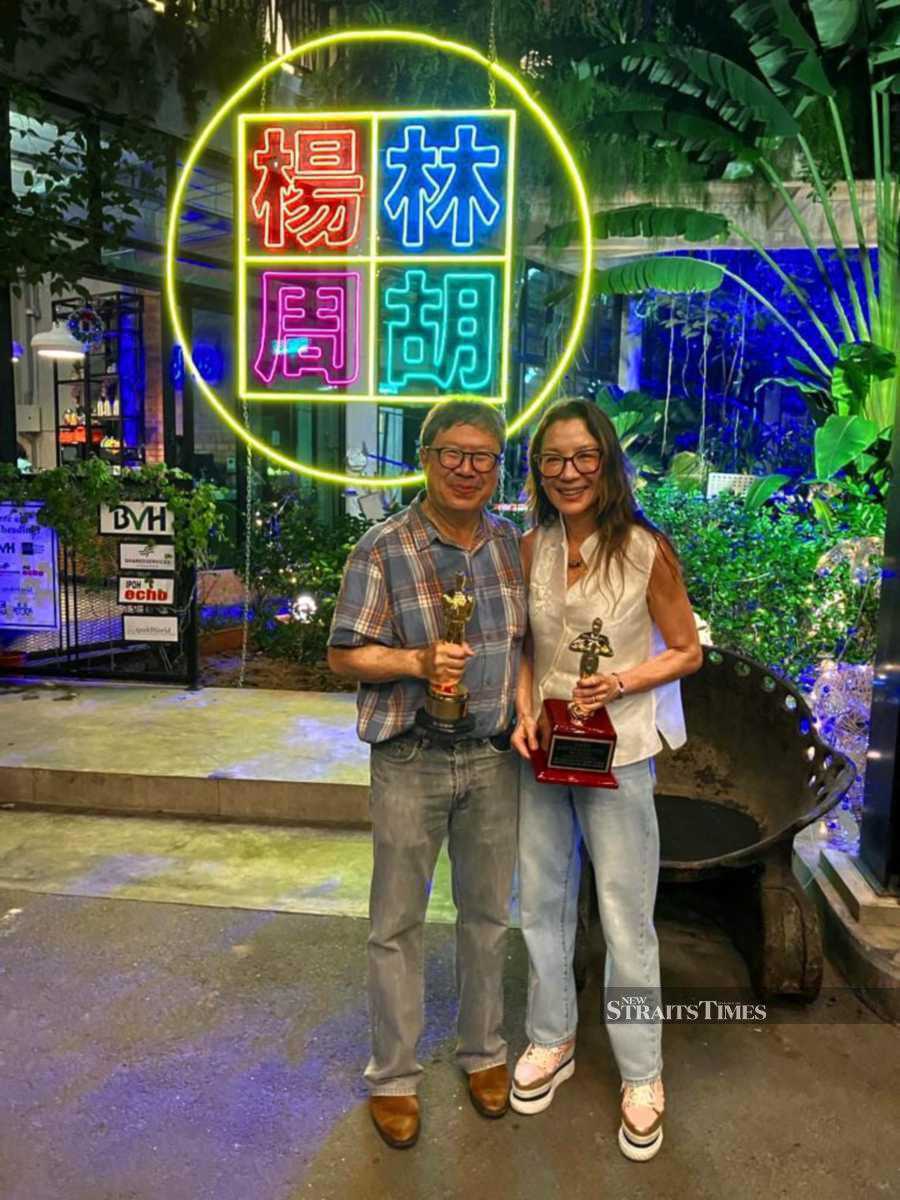
Meanwhile, youngest son Roger Yeoh is an information technology consultant in Malaysia. The Yeohs have a large extended family. Among them is a famous half-sister — Academy Award-winning international movie star Tan Sri Michelle Yeoh.
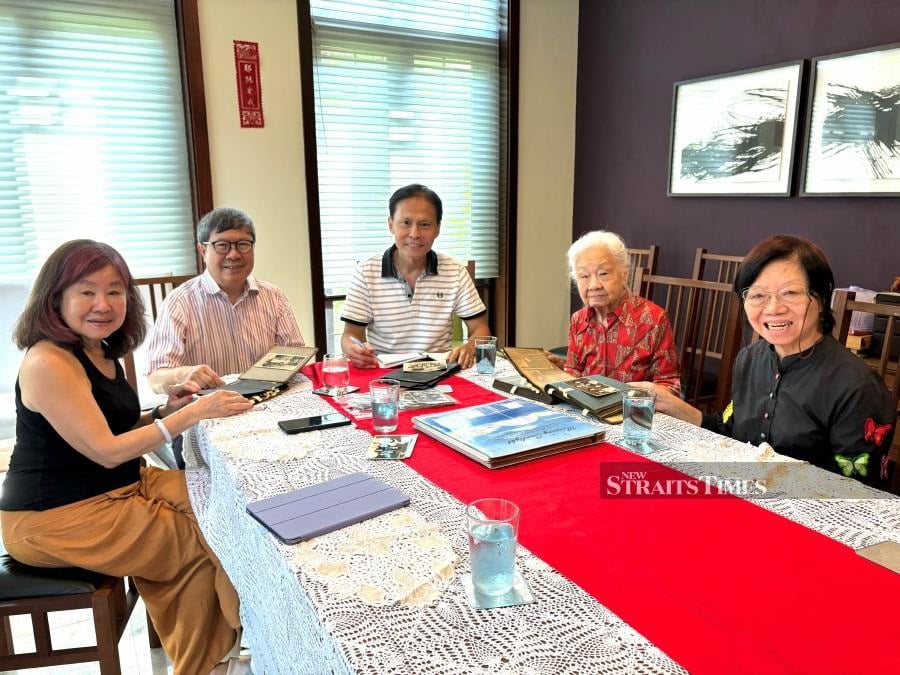
As Chow, now a doting and sprightly great-grandmother, approaches her 96th birthday, her presence radiates hope and inspiration, untouched by the years that have passed. Her story transcends mere survival; it's a testament to the triumph of perseverance in the face of adversity, showcasing the limitless potential that resides within each and every one of us.
The writer wishes to express his gratitude to principals Mary Ho and Madam Tan Pei Nee, and heads of the various boards and associations of SRJK Ave Maria Convent — Datin Irene Lee, Madam Moy Ooi Thye, Madam Chik Mun Ling, Leong Cheok Lung, Liew Swee Fong, Ignatius Chew, Madam Linda Tan and Esther Tan — for their kind assistance.


